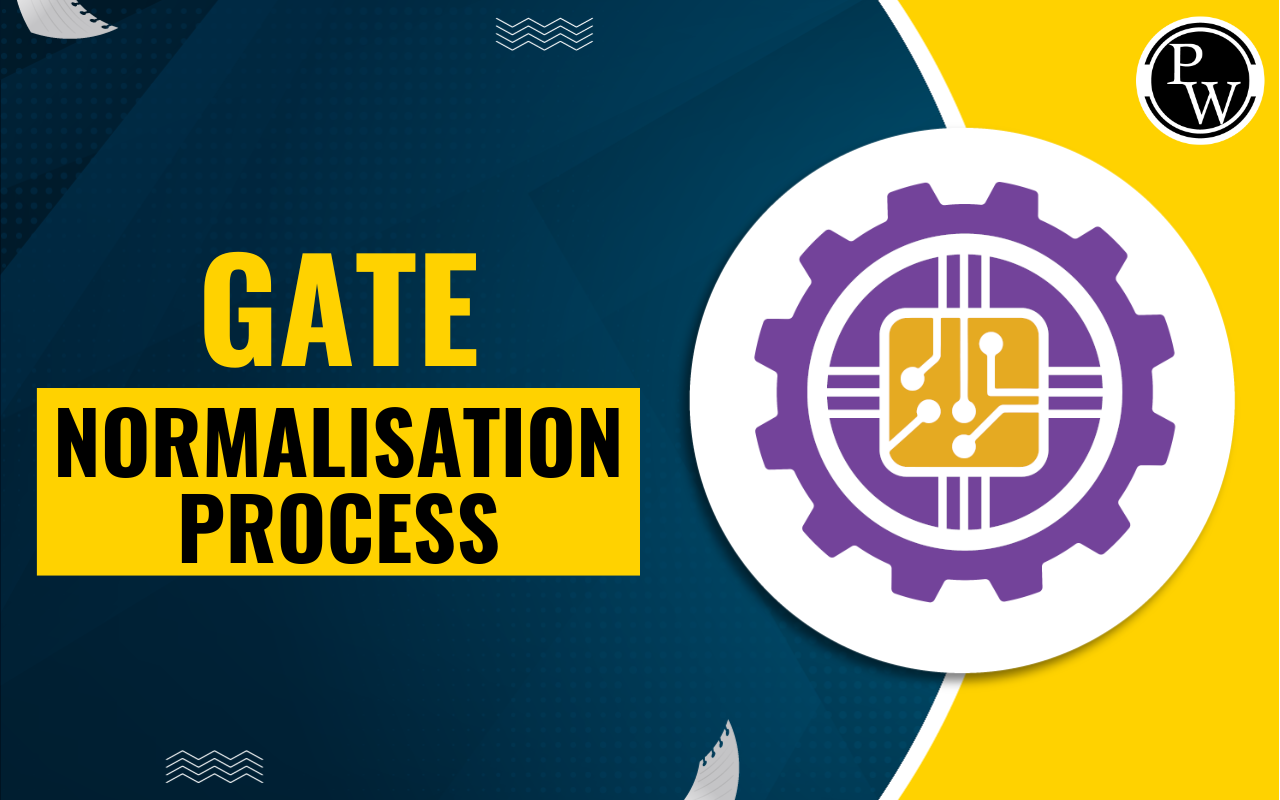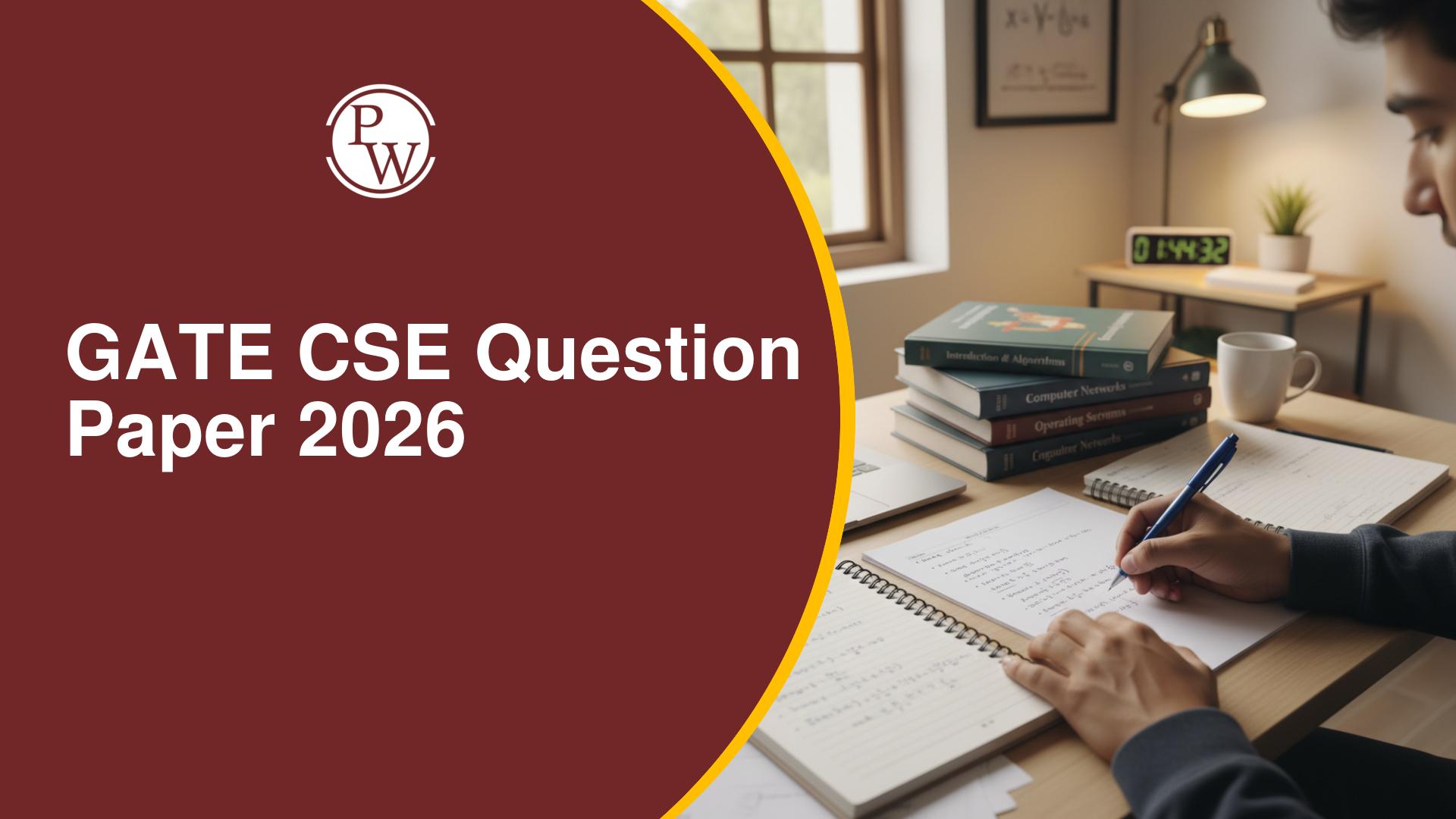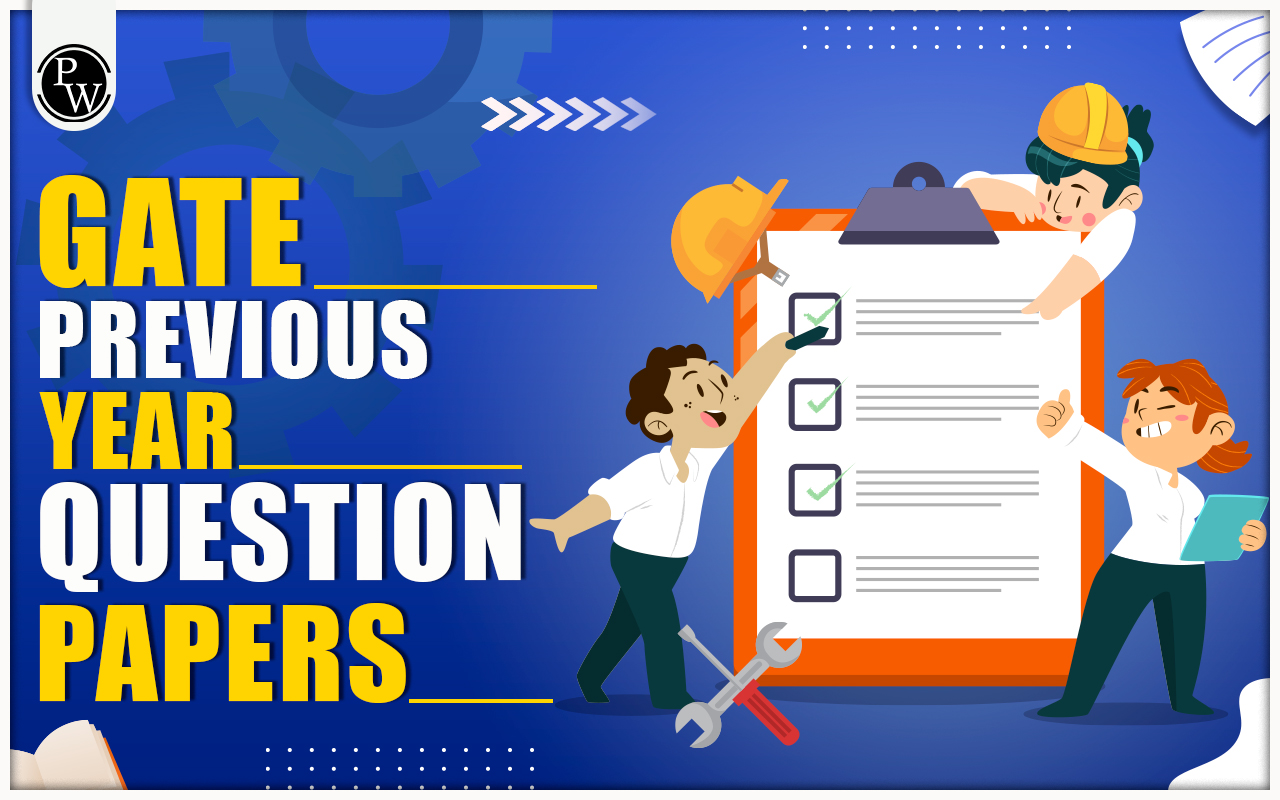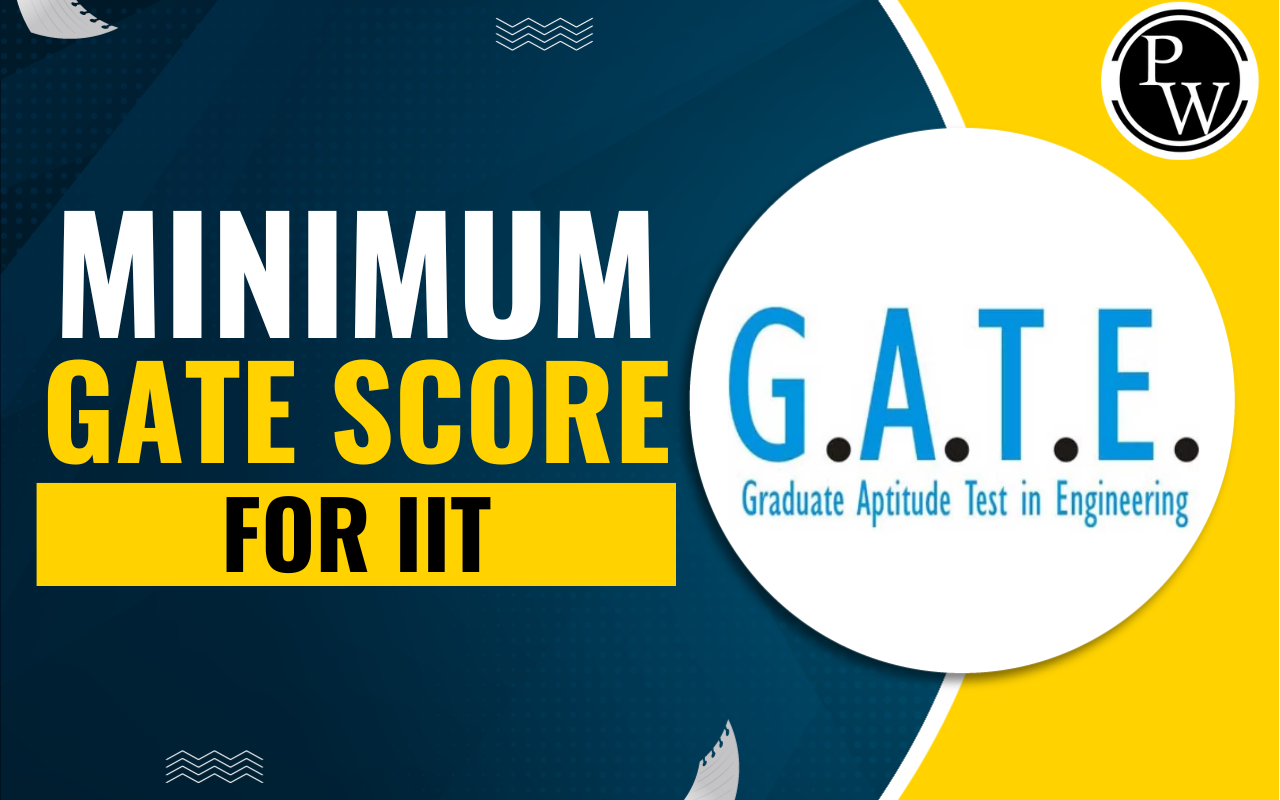
When pursuing a career in engineering in India, two significant assessments stand out: The Graduate Aptitude Test in Engineering (GATE) and the Engineering Service Examination (ESE). While both tests are essential in engineering, their aims and scope are diverse.
This article will provide a full analysis of GATE vs ESE , delving into their differences, exploring the benefits and drawbacks they provide, identifying their parallels, and eventually assisting you in making an informed decision on which test best corresponds with your goals.
GATE vs ESE - Overview of GATE and ESE
GATE Exam, also known as the Graduate Aptitude Test in Engineering, is an online competitive exam conducted by renowned institutes IITs and IISc every year. The national-level exam tests the student's ability in the engineering and technology field and proves them admission for M.Tech. in IITs and jobs in PSUs .
The Union Public Service Commission (UPSC) administers the Engineering Service Examination (ESE), often known as the Indian Engineering Services (IES) test. This demanding test seeks individuals for engineering jobs in various government agencies and organizations. The ESE exam is conducted across multiple engineering specialties, allowing graduates to work as engineers in different government areas.
Difference Between GATE and ESE
There are significant differences between GATE and ESE exams. Some differences between both engineering exams are as follows.
| Differences between GATE and ESE Exams | ||
| Basis | GATE | ESE |
| Purpose | Indian postgraduate engineering courses entrance examination. | It is a competitive examination to recruit engineering services in the government sector in India. |
| Syllabus | The GATE syllabus is intended to assess students' comprehension of fundamental engineering topics and their application. Engineering Mathematics, General Aptitude, and the candidate's chosen engineering subject are all covered in the course. | The ESE syllabus assesses applicants' understanding of their chosen engineering subject. Civil engineering, mechanical engineering, electrical engineering, and electronics and telecommunication engineering is among the areas covered in the curriculum. |
| Eligibility | Candidates must have a bachelor's degree in engineering/technology or a master's degree in science. | Candidates must have a bachelor's degree in engineering. |
| Exam Pattern | It is a three-hour paper with 65 questions (general aptitude and subject-specific portions). | It is a two-stage exam. The preliminary exam is computer-based and includes 2 papers, General Studies & Engineering Aptitude, and one engineering discipline) and the mains exam is conventional and consists of 2 papers for each engineering discipline). |
| Types of Questions | Multiple-choice questions. | Multiple-choice and conventional (written) questions. |
| The number of attempts | No limit. | A maximum of 6 attempts is allowed. |
| Age limit | No age limit. | 30 years (general category), 33 years (OBC), and 35 years (SC/ST). |
| Validity of scorecard/ rank | 3 years from the results announcement date. | 2 years from the date of declaration of the final result. |
| Conducting Authority | Indian Institute of Science (IISc) and seven Indian Institutes of Technology (IITs) on behalf of the National Coordination Board - GATE, Department of Higher Education, Ministry of Education, Government of India. | Union Public Service Commission (UPSC). |
| Career Opportunity | GATE scores are used for admission to postgraduate engineering courses in India and recruitment purposes by various PSUs. Candidates who score well in the exam can also apply for research positions in various engineering fields. | ESE provides individuals with the option to work in a variety of engineering services positions within the Indian government. Among these positions are the Indian Railway Service of Engineers (IRSE), the Indian Railway Stores Service (IRSS), the Central Engineering Service (CES), the Central Water Engineering Service (CWES), and many more. ESE is also a stepping stone to higher government employment since individuals who pass the test can be promoted to higher positions based on their performance. |
| Difficulty Level | GATE is a reasonably challenging exam, and applicants who have a strong knowledge of basic engineering principles and have prepared carefully can score highly. However, competition for GATE is high, with lakhs of applicants taking the exam each year. | ESE is regarded as a very competitive test. The exam assesses students' technical expertise in their chosen engineering subjects, and it is rigorous. The intense competition, with only a limited number of positions available each year. |
| Salary and Benefits | Candidates who pass GATE and are hired by PSUs are awarded an annual beginning salary of roughly INR 8-10 lakhs. The compensation will be determined by the PSU and the candidate's performance. Candidates who continue postgraduate degrees after passing the GATE can also expect to earn more money. | Candidates who pass the ESE exam may expect to earn between INR 50,000 and INR 1,50,000 per month, depending on the position and the candidate's expertise. Candidates are entitled to various perks, including medical insurance, travel allowance, and housing allowance, among others, in addition to income. |
Key Difference Between GATE and ESE
The key differences between GATE and ESE are as follows:
- The GATE Exam is designed for higher education admissions and PSU recruitment, while ESE is used to select engineering graduates for government posts.
- Many institutes and public sector organizations recognize GATE Score Card , whereas ESE focuses on government sector recruiting.
- GATE provides a wide range of engineering disciplines, whereas ESE covers fundamental civil , mechanical , electrical , and electronics engineering subjects.
- GATE is often considered difficult because of its broad syllabus and intellectual problems, while ESE is well-known for its extensive and application-based questions.
What is GATE Exam?
GATE, or Graduate Aptitude Test in Engineering, is a competitive exam conducted by 7 IITs and IISc on a rotational basis. These programs provide students with advanced knowledge, research possibilities, and specialized training, making GATE an essential doorway to higher education.
GATE eligibility requires candidates to hold a bachelor's degree in Engineering/ Technology/ Architecture or a postgraduate degree in Science/ Mathematics/ Statistics/ Computer Applications.
The exam follows a computer-based test pattern with multiple-choice questions (MCQs), multiple-select questions (MSQs), and numerical answer-type questions (NAT). It covers a wide range of subjects, including engineering, mathematics, and general aptitude.
GATE scores are commonly recognized for admission to postgraduate programs such as M.Tech. and Ph.D. in a variety of engineering, technology, and scientific specializations. It is accepted by several establishments and organizations, including the Indian Institute of Technology (IITs), the Indian Institute of Science (IISc), the National Institutes of Technology (NITs), and many other universities and research institutions.
Furthermore, GATE score cards are essential in India's various Public Sector Undertakings (PSUs) recruiting processes. It can be used in Bharat Heavy Electricals Limited (BHEL) , Oil and Natural Gas Corporation (ONGC) , Indian Oil Corporation Limited (IOCL) , and many more. Qualifying applicants have an opportunity to gain prestigious employment in these organizations, with high compensation, benefits, and job stability.
GATE scorecards are valid for three years from the result announcement date. It implies that individuals can utilize their GATE results for admissions and employment applications during this time. Individuals can use the validity time to research alternatives, obtain job experience, or prepare for further education.
Passing the GATE Exam proves the candidates' academic and career potential, technical proficiency, problem-solving talents, and analytical capabilities. It reflects their commitment, tenacity, and expertise in their field. The qualifiers frequently have an advantage over others in the competitive job market and may also be given preference in private organization recruiting procedures.
Advantages of GATE Exam
GATE Exam comes up with various advantages. Many candidates appear in this exam due to its benefits in careers and jobs. Here, we have combined some advantages of the GATE Exam.
- Comprehensive Understanding – The GATE score reflects candidates' thorough understanding of the subject they have selected during the application form-filling process.
- Recognition by Institutes and Employers – Institutes and employers in India widely recognize the GATE score as a measure of aptitude for higher studies and research in engineering.
- Prerequisite for Postgraduate Programs – A GATE score is a prerequisite for admission to postgraduate engineering programs like M.E., M.Tech., and Ph.D. in renowned institutes, including IITs, IISc, and NITs.
- PSU Recruitment - Some PSUs use GATE scores for recruitment to entry-level positions, increasing job prospects for candidates with high GATE scores.
- No Age Limit and Unlimited Attempts - GATE has no age limit, and candidates can attempt the exam multiple times until they achieve their desired score.
- Enhancing Knowledge and Skills - Appearing for GATE helps candidates brush up their subject knowledge, improve problem-solving skills, and identify areas for improvement.
- Multiple Sessions - GATE is conducted in various sessions over a week, giving candidates the flexibility to choose a convenient session.
- Open to All Nationalities - GATE is available to candidates of all nationalities, making it an appealing choice for international students pursuing higher studies in India.
Disadvantages of GATE Exam
Apart from the benefits, there are some disadvantages of the GATE Exam.
- Competitive Nature - GATE is a highly competitive examination with an increasing number of candidates each year, making it challenging to secure a good rank or score.
- Time-Consuming and Demanding - GATE requires significant dedication and hard work in preparation, which can be stressful and demanding for candidates.
- Cost Factor - The examination comes with a cost ranging from INR 1500 to INR 2000, and candidates may incur additional expenses for coaching and preparation materials.
- Validity Period - GATE scores remain valid for three years only, after which candidates must reappear for the exam to utilize their scores for admission or recruitment purposes.
- Limited Geographical Validity - GATE scores are applicable within India and may not be recognized for pursuing higher studies or research abroad, requiring candidates to take relevant exams in their desired countries.
- Comprehensive Evaluation - Institutes and PSUs consider factors beyond GATE scores, such as academic records, work experience, and personal interviews, when making admission and recruitment decisions.
- Subject Limitation - GATE is conducted in 29 subjects, and candidates must choose a subject aligned with their career goals, as switching to a different subject later may not be feasible.
What is Engineering Service Examination (ESE)
The Union Public Service Commission (UPSC) in India conducts the Engineering Services Examination (ESE) to select candidates for engineering posts in the government. Candidates who have a bachelor's degree can apply for the ESE Exam.
The exam is divided into two stages: a written exam and an interview. The written examination consists of two preparatory exams and four major examinations for each engineering subject. The last stage is the interview, which evaluates candidates' eligibility for a job in Indian Engineering Services.
Successful applicants may be assigned to engineering jobs in the Indian government, such as IES, IAS, and IPS.
Advantages of Engineering Service Examination (ESE)
Below, candidates can check the advantages of the Engineering Service Examination (ESE).
- Prestigious Career Opportunities - Qualifying for the ESE exam opens doors to prestigious career opportunities in various government departments and organizations, allowing you to serve as an engineer in the public sector.
- Job Security and Stability - Government positions obtained through ESE offer job security and stability, as they come with attractive perks, benefits, and pensions.
- Diverse Engineering Disciplines - ESE covers a wide range of engineering disciplines, allowing candidates to specialize in their field of interest and contribute to projects of national importance.
- Growth and Promotions - ESE offers avenues for career growth and promotions within the government sector. Successful candidates can progress through different ranks and assume leadership roles over time.
- Social Impact - ESE qualifiers can contribute to society's development and welfare through engineering projects and initiatives by working in government departments and organizations.
Disadvantages of ESE
Check the disadvantages of the Engineering Service Examination below.
- Lengthy Selection Process - The selection process for ESE is extensive and time-consuming, involving multiple stages such as the preliminary exam, mains exam, personality test, and medical examination, which can be mentally and physically taxing.
- Limited Private Sector Opportunities - Qualifying for the ESE exam primarily leads to career options in the public sector, limiting opportunities in the private sector for candidates who may prefer a different work environment or industry.
- Geographical Constraints - Government requirements determine ESE postings, and candidates may need to relocate to different locations across the country as per job assignments, which may only be suitable for some.
- Limited Flexibility - Government positions obtained through ESE often come with strict rules and regulations, limited autonomy, and adherence to bureaucratic processes, which may not appeal to individuals seeking more flexibility and independence in their work.
What are the Similarities Between GATE and ESE?
GATE (Graduate Aptitude Test in Engineering) and ESE (Engineering Services Examination) are competitive examinations in India. The following are some similarities between GATE and ESE:
- Both GATE and ESE are conducted every year as competitive examinations.
- GATE and ESE both syllabus include a variety of engineering areas.
- GATE and ESE are both conducted in many sessions over one week.
- Both examinations have time limits (3 hours for GATE and 6 hours for ESE).
- GATE and ESE have cut-off scores/ranks used to select candidates for admission or recruitment.
- Both GATE and ESE are administered by famous Indian institutions.
- GATE and ESE are both offered to candidates to appear from all nationalities.
- Candidates for both GATE and ESE have a predetermined age limit.
Which Exam to Choose Between GATE and ESE?
The decision between GATE and ESE is based on your job ambitions and aspirations. GATE is the better option if you want to pursue higher education, such as an M.Tech./Ph.D. or research. On the other hand, ESE is an excellent choice if you want to work in the government sector and occupy management or technical roles.
Is GATE Exam Tougher Than ESE?
GATE and ESE difficulty levels are subjective, as both tests provide unique obstacles. GATE offers a more substantial course that covers various engineering fields, while ESE concentrates on basic engineering topics. Both exams also include in-depth and application-based questions. The level of difficulty may vary based on candidates' skills and interests.
GATE vs ESE FAQs
Q1. Can GATE results be utilized to recruit PSUs?
Q2. Can ESE results be utilized for college admissions?
Q3. Can the GATE and ESE be taken at the same time?
Q4. How many GATE and ESE exam attempts are permitted?
Q5. Is coaching required for GATE and ESE preparation?










